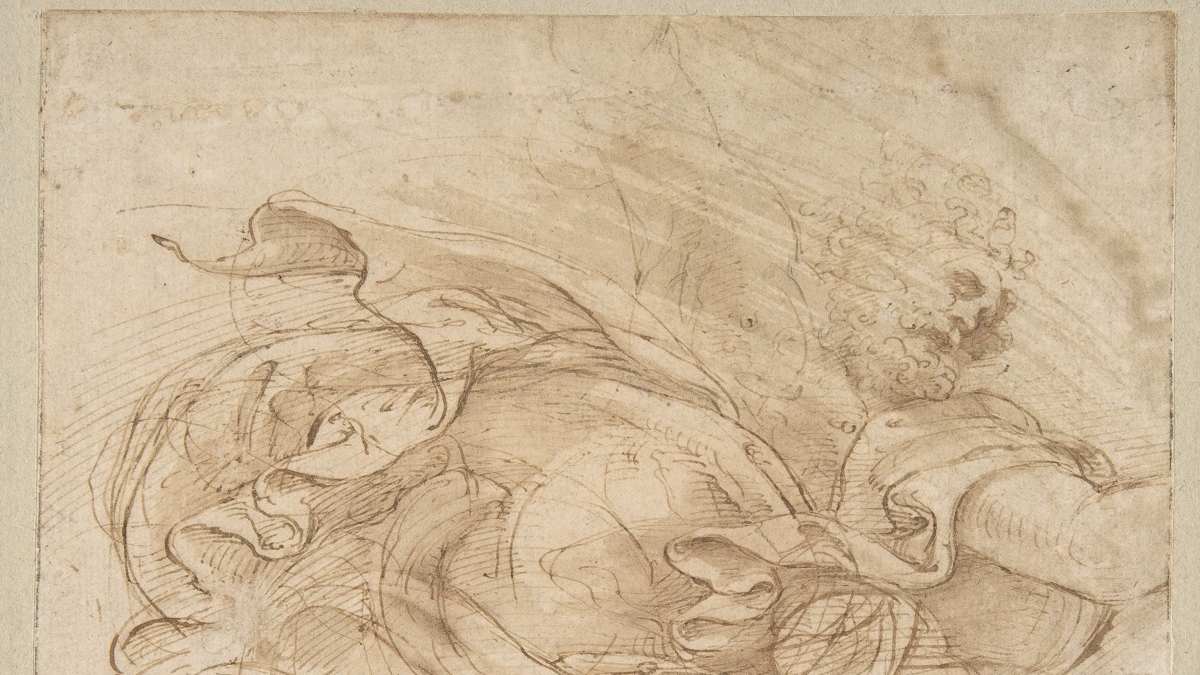
The Long Road to Success: Giulio Romano between Rome and Mantua
Online
Dr Barbara Furlotti
5 pre-recorded lectures and 5 Zoom seminars over 5 weeks, in 2025 at 18:00 [London time] from Thursday 9 January to Thursday 6 February
and in 2026 at 18:30 [London time], from Thursday 15 January to Thursday 12 February
£195
Please note that the 2025 course has now finished, and booking for the 2026 course will open in mid-July 2025. You can browse our upcoming April evening study online courses here.
Course description
In his Lives of the Artists (1568), Giorgio Vasari describes Giulio Romano (1492 or 1499/1546) as “inventive, versatile, prolific”, but also “jovial, affable, gracious and absolutely abounding in the finest manners”. Having met Giulio in Mantua and having spent a few days leafing through his outstanding collection of drawings, Vasari’s opinion was based on first-hand experience. For him, Giulio embodied the ideal Italian Renaissance artist: someone who possessed a prodigious talent and the manners of a perfect courtier.
By delving into the private and professional life of Giulio Romano, this course will investigate the many obstacles that one had to overcome to become a successful artist in the very competitive arena of Renaissance Italy, from the often harsh training in the workshop of a master to the struggle to find a patron. We shall follow Giulio from his apprenticeship in Rome with Raphael, who loved him dearly, to his years at the court of Mantua, where he established a strong relationship with Federico Gonzaga, the young duke of the city and a refined art lover. Giulio’s inventive creations for the Gonzaga court ranged from plans for grand villas to designs for silverware and were highly admired by both fellow artists, who would steal them, and European rulers, who would compete with each other to secure one of his works for their collection. Tellingly, Giulio is also the only Renaissance Italian artist mentioned by Shakespeare, who praised him in The Winter’s Tale, proof of his Europe-wide and enduring reputation.
Lecturer's biography
Dr Barbara Furlotti is Associate Lecturer at The Courtauld. From 2009-10 she held a post-doctoral fellowship at the Getty Research Institute in Los Angeles, where she was involved in the research project The Display of Art in Roman Palaces, 1550-1750. As a Marie Curie Fellow at the Warburg Institute (2012-15), Barbara worked on her book Antiquities in Motion: From Excavation Sites to Renaissance Collections (Getty Publications, June 2019). She has published extensively on the history of collecting, display practices and the art market. With Guido Rebecchini, she co-curated the exhibitions Giulio Romano: Art and Desire (Mantua, Palazzo Te, 6 October 2019-6 January 2020) and Giulio Romano: The Power of Things on Renaissance design (Mantua, Palazzo Te, 8 October 2022-8 January 2023).